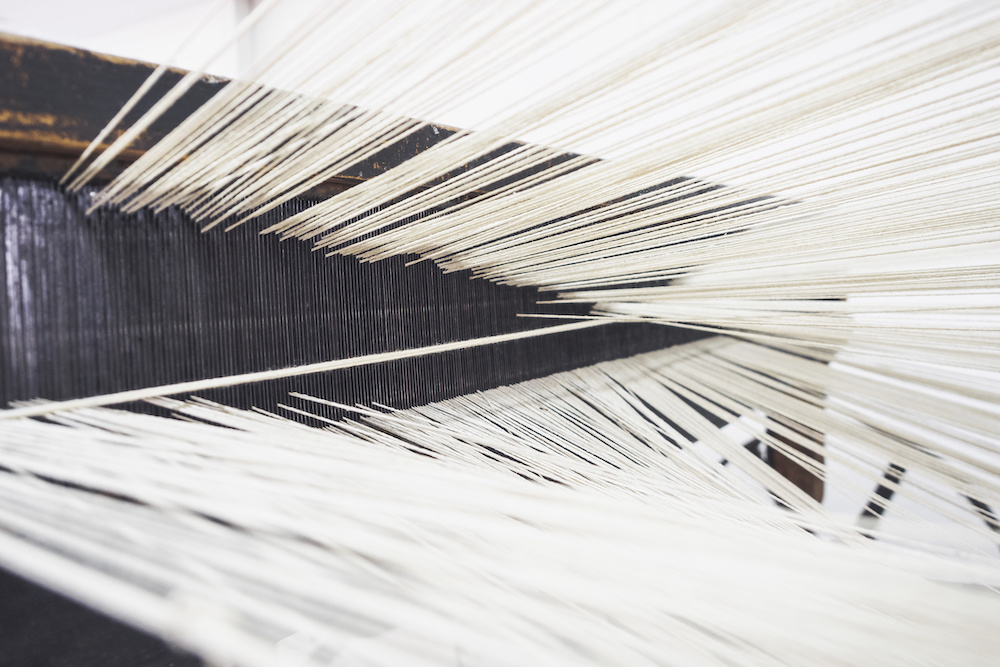
Interview with Muzaffer Kayhan – General Manager Soktas
SOKTAS – Important Turkish Textile Company, founded in 1971 and listed on the Stock Exchange starting from 1995, Soktas specializes in the production of cotton and blended fabrics for shirts, jackets, and trousers. It has its headquarters in Söke.
Soktas has a great fashion showroom in Istanbul and has a research and development department that can count on a team of over 40 people. From the point of view of textile design and study aimed at improving the beauty and efficiency of fabrics, which are the strengths of Soktas and which are the most creative and innovative projects carried out in recent years? Can you talk to us about the Meander 71 project?
The Meander 71 project definitely takes the cake here. Started as an agricultural project where we invented the first long staple cotton grown in Asia Minor. We are still the only ones planting this special cotton in our own fields located in Söke near our factory. I can confidently say we are the only fabric weaver in the world to do so. This project helped us get back into the mindset of farming for high quality cotton that are tailored to our needs in the most sustainable way. We need the best ingredients to make the best fabric in the world.
Soktas participates in Trash-2-Cash, a project financed by the European Union with the aim of creating new textiles recycling textile waste, and is also active in the project NeoCel, which aims to produce fabrics from cellulose and natural fibres. From the qualitative point of view can be obtained – by recycling – of products similar to those in standard cotton? Is it possible to reconcile quality and respect for the environment?
We have to remember that these projects have just finished or about to finish their testing stages. At the moment the end product we are getting is a fiber which is more suitable for making t-shirts and other basic items. However, the teams behind these projects are working tirelessly to widen the area of use for these products.
Recycling is an extremely important measure that has to be taken in order to save the environment and we are very proud to be taking part in projects such as Trash-2-Cash and NeoCell as an eco-conscious company.
Today Soktas also sells online and has an e-commerce section on its site. How important is this channel from the perspective of the image and from the point of view of the business?
Life in the 21st Century is extremely fast. Time is the most important and expensive commodity in the world. So consumer trends adapt to this pace as well. We rarely have the time to go for leisurely shopping outings anymore. Most essential purchases are being done online now especially with the help of smartphones. Our customers are no different. They want to be able to buy the quality of shirt or fabric they are accustomed to wherever they are at any given time. So we started two e-commerce sites. shop.soktas.com for cut-lengths of shirtings which they can take to their own tailors to make into shirts, and www.gizahouse.com where they can buy shirts made by us directly. We are also going to integrate a made to measure program to these two where you can introduce your body measurements to get a tailored shirt made especially for you.
The speed factor is essential In the textile sector today. How do you move on this front and what do you do in practice to speed up and shorten delivery times?
Speed was always an important factor in our industry, but today it’s easily one of the most important factors. Our customers, even the high fashion brands we work with, are starting to phase out the regular two season collections and opting out for more fluid transition with four seasons or “see now, buy now” collections. The success of fast-fashion brands like H+M and Zara pushed them to do so. People don’t want to wait anymore to be able to buy something they see in a magazine or online. So this pushes the brands to try and put new products into their lines very quickly and continuously. In turn, the lead times that the producers such as SOKTAS have decreased dramatically.
I believe that our know-how gives us the advantage to be able to answer these demands. We at SOKTAS are extremely lucky to possess this know-how to produce shorter runs with shorter lead times with the help of meticulous planning and innovation, especially in production processes.
What do you think about the trend and evolution of the textile market in recent years? How has the textile sector changed, globally, and how could it change in the coming years?
As we talked about earlier, speed is one of the most important factors in the evolution of textiles and fashion. Another important trend would be environmental and social sustainability. People now have the conscious awareness about these issues. They care about where and how the products they are consuming were produced. I see this as a very positive point for our industry where exploitation of people and natural resources has been a black stain for many decades. I believe that sustainability will be the forerunner of global trends in the years to come, and rightly so.

